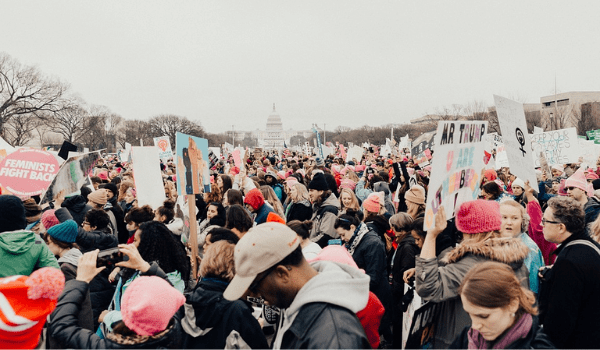The month of October 2021 was dubbed by media houses and industry experts alike as ‘Striketober’. As is apparent from the name, October of 2021 witnessed a plethora of organised employee strikes across India as well as the US. Amongst the most significant of these strikes that happened in the US, was the one where a bunch of Netflix employees protested against the digital streaming company’s decision to air comedian Dave Chappelle’s controversial standup comedy act, The Closer.
In India, multiple employee strikes, primarily by workers in public-sector companies, such as MSRTC, Air India, KSRTC, AIIMS, among others, were witnessed.
The Netflix movement saw the Company’s employees making their issues with the company public on social-media platforms, gaining significant traction online. Similarly, employees at McDonald’s came out to protest against multiple accounts of sexual harassment in the Company. BBC estimated that around 100,000 employees went on strike or threatened to call a strike in October. The news piece quotes Richard Bensinger, an organiser at Workers United, a union, who says that the situation is reminiscent of the 1930s, when industrial action was commonplace in the US.
Strikes and protests have always been a major challenge for HR professionals as well as company leaders to deal with. Ravi Mishra, senior vice president- HR, Aditya Birla Chemicals, discusses with HRKatha that rather than trying to manage such disastrous situations, the priority should be to build a company culture, where such events do not occur or germinate at all. “The best organisation is not the one that finds itself in a position to deal with strikes, but the one which fosters an ecosystem where such instances are minimal,” says Misra.
In order to accomplish that, he says that the people policies of the company should be transparent and robust — something that many modern companies lack.
“The best organisation is not the one that finds itself in a position to deal with strikes, but the one which fosters an ecosystem where such instances are minimal”
Ravi Mishra, senior vice president- HR, Aditya Birla Chemicals
According to him, the primary reason for strikes is the lack of approachability of the HR department for the employees. He suggests the following route for HR to approach an unrest situation in a company. “The moment employees come up to one with their demands or issues, one needs to analyse them immediately, rather than waiting for the situation to go out of control,” he advises. Further, HR professionals should be able to soundly convey to the employees the challenges being faced by the employer in a digestible and logical manner.
Impact of social media
With the advent of social media, it becomes more of a crisis-mangement situation for the employers when workers go public with their issues. “Employees are more empowered nowadays, since social media has come into the picture. They are able to spread the word, about their issues and concerns with their employers, in the public domain. This exposes the employers to criticism from outside,” Mishra points out.
Speaking with HRKatha, Abhijit Bhaduri, senior HR leader, also agrees on the impact of social media on employee strikes. He believes that many social-media channels don’t really drive significant traction from posts that are positive in nature, but the algorithm generally promotes controversial content. However, he doesn’t really see the on-ground efficacy of campaigns that are primarily run online. “The more enraging and divisive the content is, the more views it garners, primarily owing to the algorithm that many social networks employ. However, how much of online interaction with posts converts to on-ground effectiveness is still a question mark,” states Bhaduri.
“Today, people are far more connected, and we have a more enlightened workforce now. Things are brought up more frequently and redressal needs to be quick”
Abhijit Bhaduri, senior HR leader
He assesses that employee strikes in the past were logistically tougher to organise, since one required to have people on ground. He recalls that factories would shut down in an entire industrial belt when employees got together to protest. “Today, people are far more connected, and we have a more enlightened workforce now. Things are brought up more frequently and redressal needs to be quick,” he says.
Lend your ears to your employees!
Ravi Mishra believes that it was Russi Mody, former managing director of Tata Steel, who pioneered true employee management. He never faced a strike in the entirety of his long career. The primary reason was his openness and regular interaction with the employees to maintain a healthy culture. He believes that HR professionals should work on making the workforce more comfortable in sharing their woes rather than going online. “It is essential for the HR department to figure out why employees don’t come to them but take to social media when issues continue to go unaddressed. For this, regular interaction cannot be stressed enough,” he asserts.
Bhaduri admits that while improvement is an ongoing process, sometimes issues may be more cultural in companies. Therefore, it is essential for companies to look at the demands of striking employees in a fair manner.




1 Comment
IR failures and strikes are more because of vested interests, lack of interpersonal relations and lack of meaningful communications.
Rest are excuses and blame games….